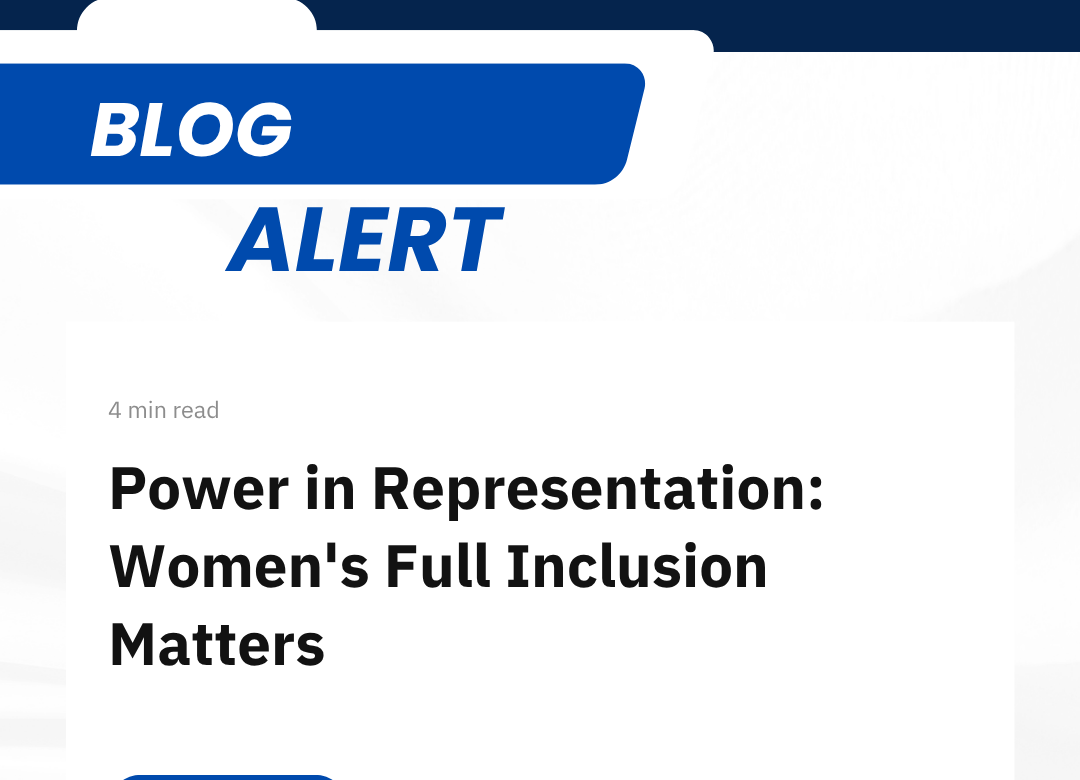This International Day of Parliamentarism, let us push for political spaces that reflect the true face of society, in all its diversity.
June 30 marks the International Day of Parliamentarism, a moment to reflect on the vital role parliaments play in building inclusive, accountable, and representative democracies. But as we mark this day, we must ask: Who is in the room, and who is still missing?
A Persistent Gap in Representation
Across Africa, and in a number of countries including Ghana, women remain severely underrepresented in political decision-making, despite being more than half the population. While there has been some progress toward gender-inclusive parliaments, the pace remains painfully slow.
Why Diverse Parliaments Matter
Parliaments shape the laws and policies that define our lives, healthcare, education, economic opportunity, and climate action. Yet when women, particularly those from rural areas, with disabilities, or marginalized communities, are not at the table, their experiences are left out of the conversation.
Representation is not just about numbers. It is about whose voices are heard, whose realities shape policy, and whose leadership gets recognized. Without diverse women in politics, democracy remains incomplete.
Ghana: A Story of Breakthroughs and Barriers
Ghana has seen powerful milestones in women’s leadership:
- In January 2025, Naana Jane Opoku-Agyemang became the first female Vice President.
- The Judiciary has also witnessed remarkable progress, with three female Chief Justices serving in recent times.
- In 2024, Efua Ghartey broke barriers as the first woman elected President of the Ghana Bar Association.
- In 2025, Hon. Abena Osei Asare became the first woman to chair Parliament’s influential Public Accounts Committee.
These achievements deserve celebration, but they are not the full picture.
- As of January 2025, just 14.5% of Ghana’s MPs are women (40 out of 276 seats).
- Only 4.1% of assembly members elected in the 2023–2024 District Level Elections are women.
- These numbers fall far short of Ghana’s commitments under the 1992 Constitution, the Maputo Protocol, and the Convention on the Elimination of All Forms of Discrimination Against Women (CEDAW).
The Affirmative Action Act: A Game-Changer in the Making
In July 2024, Ghana passed the Affirmative Action (Gender Equity) Act, signed into law in September as Act 1121.
The law sets bold targets:
- 30% women in leadership by 2026
- 35% by 2028
- 50% by 2030
It also mandates:
- Political parties to field a minimum percentage of female candidates
- Gender-responsive budgeting across all government levels
- Oversight and enforcement by the Gender Equity Committee and the Electoral Commission, with penalties for noncompliance
This is a historic move, but a law is only as strong as its implementation. And implementation remains uneven.
Zooming Out: The Pan-African Picture
Across Sub-Saharan Africa, women now hold about 26% of parliamentary seats, up from 25% in 2021. Countries like Rwanda (61.3%), Namibia (44%), South Africa, and Sierra Leone (30.4%) demonstrate what’s possible when legal quotas meet political will.
Others, including Nigeria (4.3%), Gambia, and Botswana, remain at the bottom of the rankings.
What works across the region?
- Legal quotas—whether constitutional, legislative, or party-based, are proven drivers of progress.
- Women’s parliamentary caucuses shape transformative legislation (for example, Uganda’s UWOPA and Kenya’s KEWOPA).
- CSO’s provide mentorship and build capacity of women for political leadership and increase engagement within the civic and governance space.
What’s Holding Women Back?
Despite gains, significant barriers persist:
- Deep-rooted patriarchal norms paint politics as a male domain
- Financial constraints limit women’s ability to run effective campaigns
- Party gatekeeping often sidelines women to unwinnable constituencies
- Harassment, both online and offline, disproportionately targets female candidates
- Structural challenges, lack of childcare support, inflexible schedules, and safety risks drive women out
In Ghana, delays in implementing the Affirmative Action Act and chronic underfunding of the Ministry of Gender, Children, and Social Protection are slowing momentum.
The Path Forward
In Ghana:
- Enforce the law with urgency, including real consequences for noncompliance
- Invest in women candidates through mentorship, funding, and support, especially those in rural or marginalized communities
- Tackle harassment with zero-tolerance policies and safety protocols
- Reform political parties to be more inclusive, transparent, and accountable
Across Africa:
- Enshrine gender quotas in law, not just party policies
- Fund capacity building for first-time candidates and underserved groups
- Drive cultural change through education, media, and community outreach
- Provide structural support such as childcare during campaigns, flexible schedules, and safer political spaces
This Parliamentarism Day: Let’s Raise the Bar
The International Day of Parliamentarism is more than a celebration; it is a wake-up call. If parliaments are to deliver on their democratic promise, they must reflect the full diversity of the people they serve.
Ghana’s Affirmative Action Act 2024 and Sierra Leone’s Gender Equality and Women’s Empowerment Act 2022 have the potential to inspire a continent. But success lies not in the ink on paper, but in the change we make real.
When women lead, not a few, not a token group, but many, in all their diversity, we build stronger, more just, more inclusive democracies.
Inclusion is not charity. It is justice. It is strength. It is non-negotiable.
This June 30, let’s recommit to opening the doors of power to all women, everywhere.

